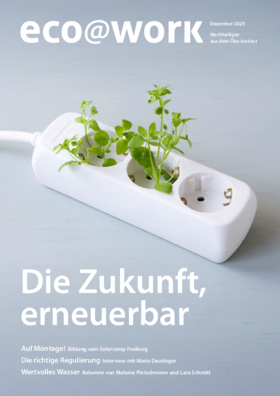eco@work
Hintergründe, Projektberichte, Interviews mit den Wissenschaftler*innen und jeweils ein thematischer Schwerpunkt: Das Online- und Mitgliedermagazin eco@work berichtet über aktuelle Forschungsthemen aus dem Öko-Institut.































